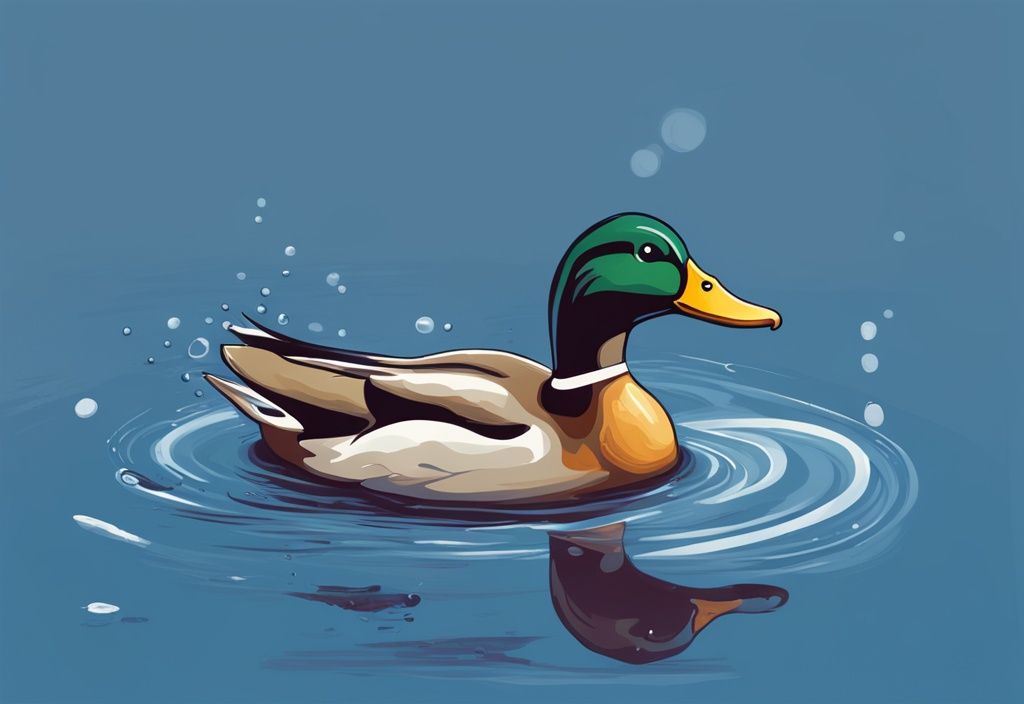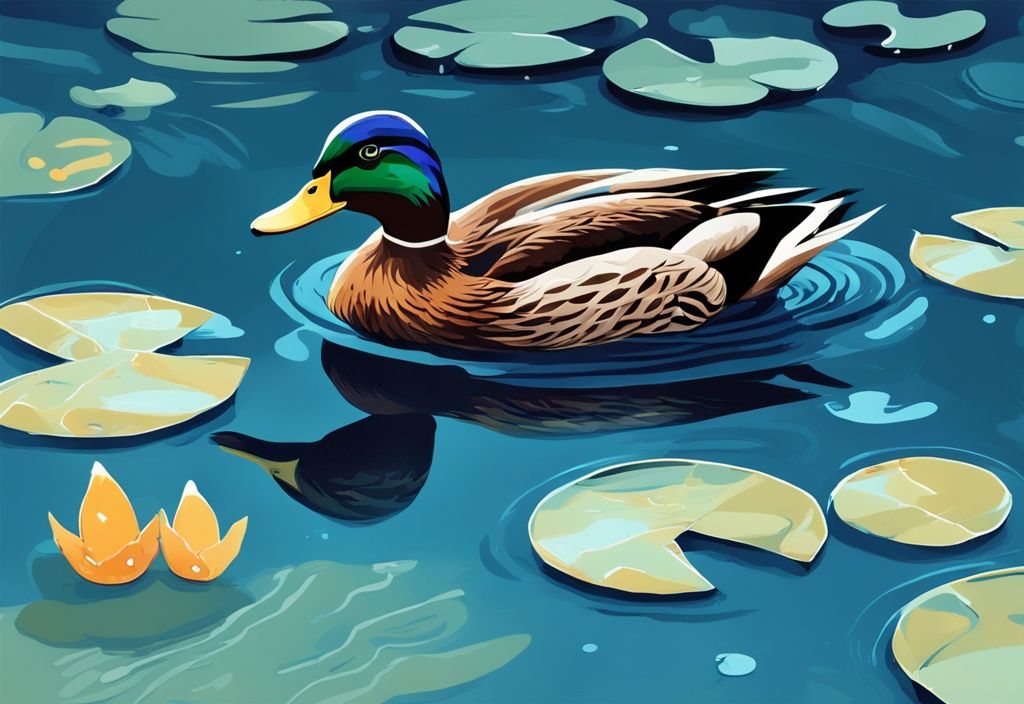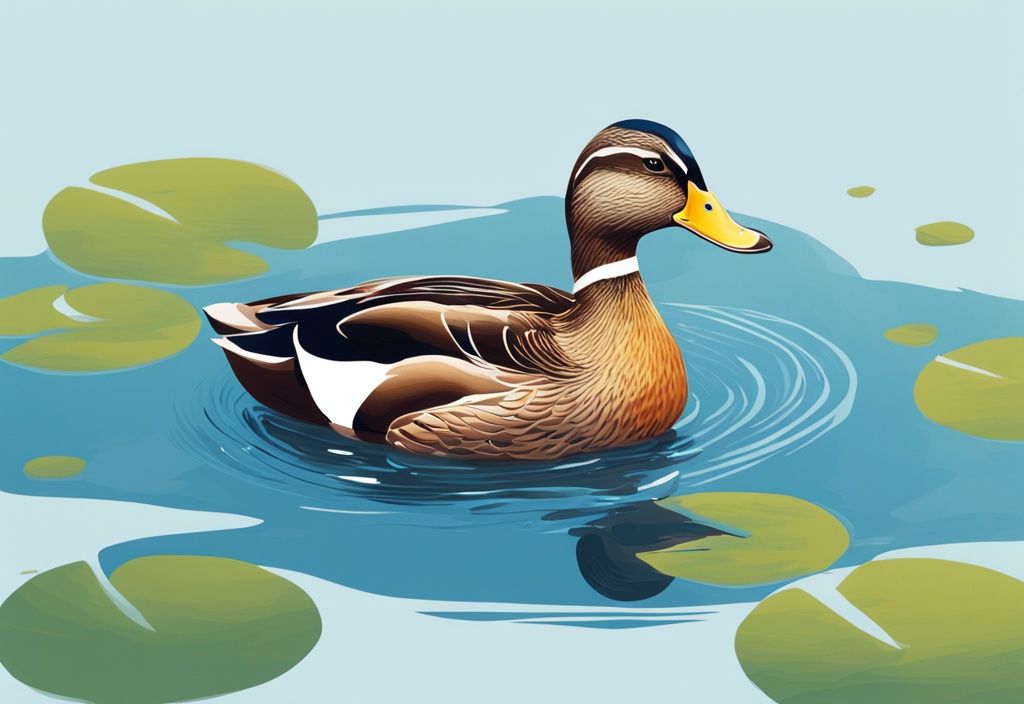When you think of a duck, you might picture it gliding across a serene pond, much like a fishing boat on a calm morning. But have you ever pondered what these feathered fellows actually munch on? Many folks assume ducks stick to plants and grains, but the truth is as surprising as landing a big catch. Ducks are opportunistic feeders, and some do indeed enjoy a fishy snack. Not all ducks dive for fish, though, and their diets can be as varied as a tackle box. So, grab your curiosity and let’s dive into the intriguing world of duck diets, exploring which ducks have a taste for fish and how they snag their slippery meals.
Do Ducks Eat Fish?
Ducks are intriguing omnivores with a diet as varied as a fisherman’s tackle box. Yes, some ducks do eat fish! But here’s the catch—not every duck species dives into a fishy feast. Their eating habits depend on their species, where they hang their feathers, and what’s on the menu in their watery world. Ducks living near lakes, rivers, and ponds are more likely to snag a fish or two. Yet, fish aren’t the main course for most ducks. Their diet is a smorgasbord of aquatic plants, insects, worms, and even small amphibians, keeping their nutrient intake as balanced as a well-cast line.
Types of Ducks That Eat Fish
Now, let’s talk about the fish-loving ducks. Mergansers and Goldeneyes are the real anglers of the duck world. These diving ducks have the knack for plunging underwater to catch small fish. With physical traits that make them the perfect aquatic hunters, they’re the pros of the pond. On the flip side, dabbling ducks like Mallards might nibble on fish if the opportunity floats by, but they aren’t built for the chase. Their diet is more like a buffet, with easy-to-reach snacks on the water’s surface.
Feeding Techniques: Dabbling vs. Diving
Ducks have their own feeding styles, much like anglers with their favorite techniques. Dabbling ducks skim the water’s surface, munching on plants and tiny critters. This method means fish are more of a lucky catch than a staple. Diving ducks, however, are the deep-sea explorers. They plunge beneath the surface, going after fish with bills designed like nature’s fishing gear—serrated edges for gripping slippery prey. This split in feeding styles shows just how diverse duck diets can be, much like the variety of fish one might reel in on a good day.
Specific Duck Species and Their Fish-Eating Habits
Ever wondered if ducks have a taste for fish? Turns out, some species do, and their feeding habits are as diverse as the waters they inhabit. Let’s dive into how different ducks approach their meals, especially when it comes to fish.
Mallards and Their Opportunistic Feeding
Mallards are the jack-of-all-trades when it comes to dining. Picture this: you’re out by the pond, and these ducks are there, taking advantage of whatever the buffet of nature offers. While they’re not exactly the fish-catching pros, they’ll snag a fish if it swims too close. Their menu is a smorgasbord—grains like corn and barley, a sprinkle of snails, a dash of tadpoles, and yes, the occasional fish. This varied diet keeps them in top shape, ready to flap their wings and explore new waters.

Diving Ducks: Mergansers and Goldeneyes
Now, if you’re looking for the real fish aficionados, meet the Mergansers and Goldeneyes. These diving ducks are like the underwater acrobats of the bird world. With sleek bodies and strong legs, they plunge into the depths, chasing down their slippery prey. Unlike the dabbling Mallards, these ducks have a penchant for fish, thanks to their serrated bills that grip like a pro angler’s hook. Their fish-heavy diet fuels their energetic escapades, making them masters of their aquatic domains.
Factors Influencing Ducks’ Fish Consumption
Availability of Fish in Their Habitat
Imagine a serene lake, the kind where you can almost hear the fish jumping. Ducks in these freshwater havens—lakes, rivers, and ponds—are more likely to snack on fish. Small fish are like a buffet for them, easy to catch and quite the treat. But here’s the catch: overfishing and pollution can throw a wrench in this natural setup. When fish numbers dwindle due to overfishing, or the water quality takes a hit from pollution, ducks might find themselves hunting for other food sources. If you’re planning a themed party, consider checking out some fishing cake ideas to add a unique touch to your event. It’s a bit like when your favorite fishing spot dries up, and you have to switch tactics. Ducks adapt, but the decline in fish means they might miss out on this tasty part of their diet.
Human Influence on Duck Feeding Patterns
Ever tossed a piece of bread to a duck? It’s a common scene, but it changes the game for these feathered friends. When ducks get used to human snacks, they might skip the fish course altogether. Bread and snacks are easy pickings, but they’re not exactly a balanced meal. It’s like us living on chips instead of a hearty fish dinner. To keep ducks in tune with their natural diet, offering them alternatives like cracked corn can do wonders. By encouraging ducks to forage, we help them stick to their roots, ensuring fish remains a part of their menu when nature allows. After all, there’s something special about watching ducks dive and forage, just as there’s joy in casting a line and feeling that tug.
Health Implications of Eating Fish for Ducks
Fish can play a significant role in a duck’s diet, offering both benefits and potential risks. Understanding these implications helps ensure ducks thrive in their natural habitats.
Benefits of Fish in a Duck’s Diet
Imagine a duck gliding across a serene lake, its eyes scanning for a quick snack. Fish are a jackpot in the duck’s dietary lottery, loaded with protein and essential nutrients. Ducks, those feathered bundles of energy, have a metabolism that demands high-octane fuel. Fish deliver just that, with proteins and omega-3 fatty acids that keep ducks spry and growing like weeds.

When fish are plentiful, they become a tasty bonus in a duck’s varied menu, boosting their nutritional intake. For those interested in how ducks might encounter such feasts, you might want to learn how to obtain a fishing license in New Mexico. It’s like finding an extra chocolate bar in your backpack during a hike—unexpected, but oh-so-welcome.
Potential Health Risks
But let’s not get carried away. Too much of a good thing can tip the scales in the wrong direction. Overindulgence in fish can lead to “angel wing,” a condition where ducks end up with wonky wings due to nutritional imbalances. It’s like eating nothing but pizza and wondering why your jeans don’t fit.
Then there’s the issue of feeder fish from pet stores. These critters might carry diseases, posing a risk to our feathered friends. Ducks might be hesitant at first to munch on live fish, but they can learn to catch them, adding a bit of excitement to their day.
The key here? Balance. Just like us anglers know when to call it a day, ducks need a balanced diet to stay healthy and happy in their watery world.
FAQ
Ever wondered what ducks munch on during their daily adventures? Let’s dive into some common questions about ducks and their dietary habits.
Do all ducks eat fish?
Not all ducks are fish fans. Their menu changes depending on the species, where they hang out, and what’s available. Some ducks, especially those paddling around water bodies, might snack on fish, while others stick to a diet of plants and invertebrates.

Can ducks eat large fish?
Ducks usually go for the smaller fish that are easy to catch and gulp down. Picture a duck trying to tackle a big koi or goldfish—it’s not happening. Those larger fish are just too much to handle for our feathered friends.
Why do ducks prefer smaller fish?
Smaller fish are like the perfect bite-sized snack for ducks. They’re easier to snag and swallow. Ducks have nifty feeding techniques and physical traits, like their bills and diving skills, that make them pros at nabbing smaller prey.
How can human feeding affect a duck’s diet?
When humans start feeding ducks, it can really shake up their natural diet. They might become less interested in fish and other natural goodies. Instead, they get used to the easy pickings from humans, which can change how they eat. So, next time you’re tempted to toss a snack, think about how it might affect their wild ways.
Conclusion
Ducks, with their omnivorous appetites, do eat fish, though it’s not their main course. Picture this: a duck gliding across a shimmering lake, eyeing the surface for a quick snack. Ducks are adaptable diners, their menu changing with species, habitat, and what’s available. Ever seen a Merganser or a Goldeneye dive? They’re the fish fans among ducks, while Mallards might just nibble on fish when the opportunity arises.
Why do some ducks go for fish? It’s all about location, location, location! Ducks in freshwater lakes or coastal areas are more likely to dine on fish, especially when these aquatic morsels are plentiful. But here’s a twist—our actions, like feeding ducks or altering their environment, can change their eating habits, sometimes steering them away from fish.
By understanding what drives ducks to eat fish, we can better manage their habitats. It’s about ensuring they get a balanced diet that keeps them healthy and energetic. After all, a well-fed duck is a happy duck, and knowing their dietary quirks helps us support their vibrant lives in the wild.


